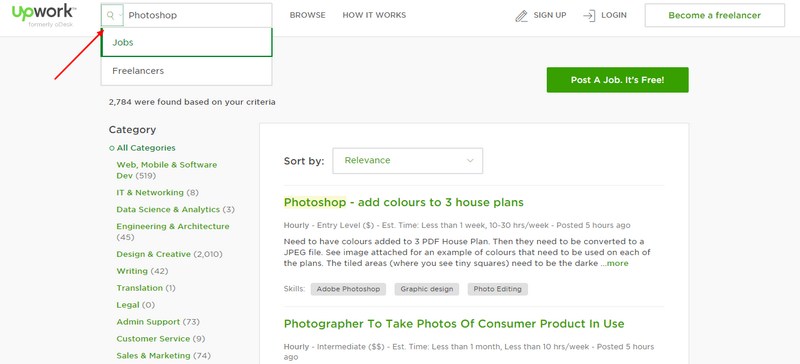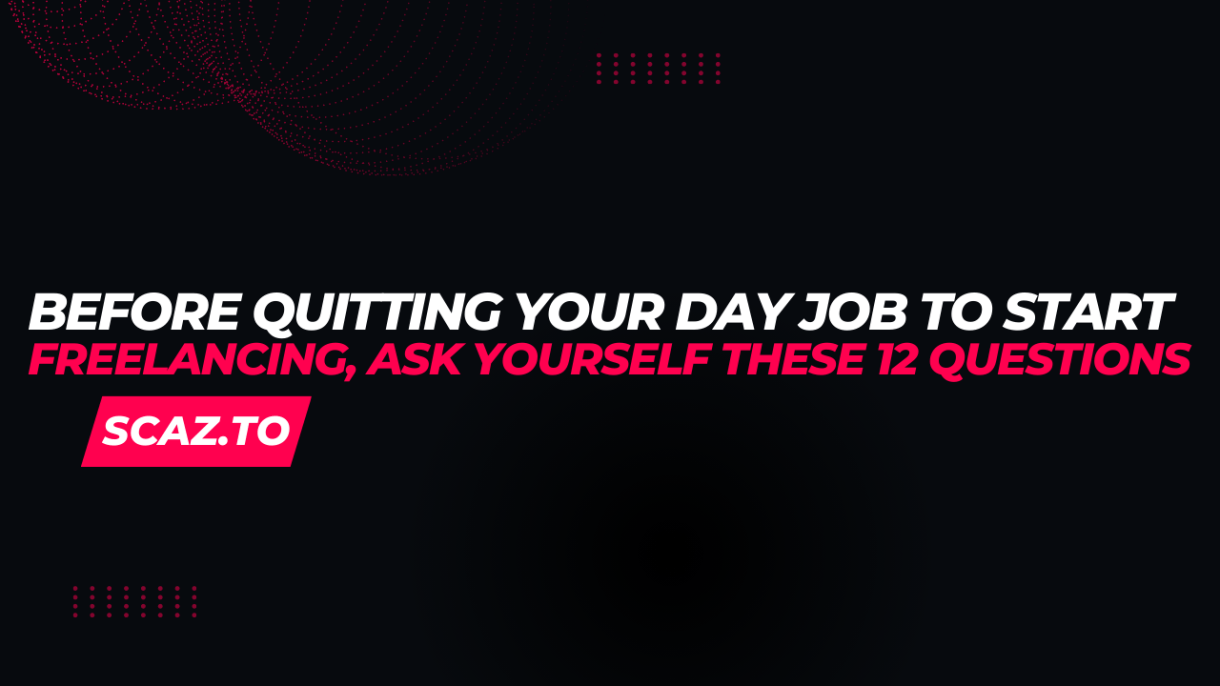For freelancers, the last few years have been incredibly lucrative. These days, some freelancers are earning so much money that my $5,000 monthly income seems meager in comparison.
It makes sense that these tales would inspire everyone to abruptly quit their day jobs and pursue a freelance career. Buy what they all forget is to realize how much of a risk they take when they try to start a freelance career without a proper plan.
So, before you decide to leave your job and work as a freelancer full-time, stop and think about these questions to make sure you’re prepared for the long and difficult journey ahead.
1. First, is freelancing the best career path for me?
Do you adore receiving a consistent paycheck each month? Do you aspire to work fewer hours at the office? And do you enjoy spending time with your coworkers at the water cooler or going out for drinks every Friday?
Then freelancing may not be your best option for a career.
Yes, independent contractors do have more freedom to select only the jobs with which they feel most at ease and do work that they genuinely enjoy. To make ends meet, however, you must put in more hours of work.
Giving up certain luxuries, such as going out with friends or taking the weekends off, is another requirement of freelancing.
To put it simply, freelancing is the best career for introverts (like me).
To succeed as a freelancer, you must be prepared to change some aspects of your life.
2. Are You Prepared To Leave Your Comfort Zone?
Running your own business is similar to becoming a freelancer. You will be responsible for finding work, overseeing projects, and communicating with clients on your own.
Due to the different time zones of your online clients, you will also need to work odd hours. Additionally, in order to be paid, you must submit your work on time.
Are you willing to accept all of that responsibility? Are you prepared to go above and beyond to succeed as a freelancer?
3. Can I safely leave my day job?
A steady income is not a perk of freelancing. You’ll never know how much money you’ll make the following month, and you’ll frequently run into trouble finding clients.
Take a moment to consider the risks you are taking by leaving your day job and the people you are endangering as a result of your choice.
For instance, if you have kids and are a family man, you might want to consider them. Will working as a freelancer enable you to support your family?
This does not obligate you to continue doing a menial job. Just think of a better strategy. Before leaving your day job, try to accumulate some money and make sure you have a few clients to work with.
4. Can I Afford To Work From Home?
You only need the bare minimum to start working from home, including a fast computer, a fast internet connection, and a quiet workspace at home.
You must also consider your financial situation.
In your first few months as a freelancer, don’t anticipate making any money. Finding long-term clients will take some time because you still have a lot of figuring out to do.
Do you have enough money set aside to cover your expenses during that time?
5. Do I Have A Marketable Skill?
Freelancing requires a valid skill to convert your experience into money, just like applying for a regular job does.
Even a simple freelance data entry job requires proficiency with a specific piece of software. And if you lack a marketable skill to advertise your freelance services, your business will fail quickly.

For instance, you can visit the UpWork website and perform a Jobs keyword search with a keyword associated with your skill to see how many jobs are offered in that category.
6. Is My Experience Enough?
If you’ve worked at your day job for several years and managed to collect a lot of experience in your field, it will help you greatly to stand out as an expert when it comes to marketing your skills and freelancing services.
If not, finding customers will be difficult.
Freelancing does not offer internship opportunities. If you lack experience, take the time to acquire it while also mastering the skills you already possess.
7. Will I Be Able To Earn Enough As A Freelancer?
If you put in enough effort, you can increase your freelance income by two or three times that of your day job. To be safe, however, find out how much actual freelancers with your skills make by doing some research.

You can find information from other freelancers on what kind of money they’re making by visiting Quora and searching for terms like “how much do freelance designers make.”
Grab a calculator and create a budget to determine how much money you’ll need for Netflix, groceries, and other expenses. Are those expenses covered by your anticipated freelance income?
8. How Will I Find Clients?
Choose whether you’ll work locally or online.
Even after leaving their job, some freelancers prefer to continue working under freelance contracts for their employers. Obviously, it depends on the manner in which you part ways with your boss.
However, the majority of freelancers find it simpler to look for work on platforms like UpWork and Freelancer. Naturally, it’s easier said than done.
Millions of freelancers from around the world offer their services on these platforms for low rates. You shouldn’t scale back your knowledge and offerings to match their level.
Determine your strategy for marketing your services. Are you going to find local clients, use online platforms, or be more independent by using tools like Twitter, Reddit, and LinkedIn to find clients?
9. Do I Know How To Handle Clients?
Even some of the so-called expert freelancers lack the ability to interact with clients effectively.
Gaining clients, comprehending their needs, producing high-quality work, and developing lasting relationships all depend on effective communication. You will struggle to find work online if you lack this one skill.
Learn how to craft compelling emails and project pitches for freelance websites. More importantly, make sure you cultivate the mindset required to maintain composure when confronted with client criticism and under pressure.
10. Should I bill by the project or the hour?
Another challenge that most beginning freelancers encounter early in their careers is figuring out how to charge for your services. Depending on your abilities and the level of experience you provide through your service, make a decision.
For instance, just because some independent programmers earn $1,000 per hour doesn’t mean you should do the same. It depends on how well you can complete a project and how quickly you can.
Personally, I like to bill per project. It allows me the flexibility to complete tasks without feeling pressured to finish them quickly. Additionally, it is more lucrative that way.
11. How Well Do I Multitask?
The one thing that most people advise you to avoid if you want to succeed is multitasking. But not when you freelance.
You’ll be handling numerous clients and projects simultaneously as a freelancer. You will be in charge of handling the business’ finances, creating invoices, and securing more work. Along with everything else you already have to do at home, that is.
Multitaskers, it should go without saying, have a better chance of earning more money as freelancers.
12. Do I Have a Backup Plan?
What if I don’t succeed as a freelancer? Can I return to my regular job?
Just stop there! Never even consider creating a backup plan.
Going all-in and giving it your all when freelancing is the best strategy. As a result, you’ll exert more effort because it’s your only option to accomplish your objectives.
Do not even consider beginning this career with an exit plan.
Like Thomas Edison, you will experience failure, difficulty, and loss, but you will also eventually achieve success. Just keep going forward until then.


